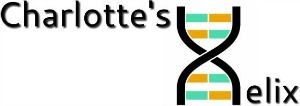Glossary
Carrier: An individual who does not show
symptoms of a disease but has the genes for it and can transfer it to his/her
child.
Cell (human): In biology, a structure
surrounded by a membrane and containing genetic material (DNA) on the inside.
Considered by most biologists to be the basic unit of life.
Chromosome: In organisms without a nucleus (such
as bacteria), this is a circular DNA molecule used in genetic engineering. In
organisms with a nucleus (including plants and humans), this is one of the
threadlike structures within the nucleus that contains DNA.
Convict: To find or prove (someone) guilty of
an offense or crime, especially through the verdict of a court.
DNA: (deoxyribonucleic acid) A molecule
in the form of a double helix , found within a structure known as a chromosome,
within the nucleus of every living cell. First discovered in the 19th century,
it controls the daily operation of a cell, and provides the genetic
"blueprint" for the physical characteristics of all living organisms.
DNA testing: The analysis of human DNA, RNA,
chromosomes, and proteins in order to detect the presence or potential presence
of an inheritable disease.
Gene: A small stretch of DNA that directs
the production of proteins. A hereditary unit that occupies a specific position
(locus) on the chromosome. This unit has a specific effect on the physical
characteristics of the organism and can house one of many different allele
forms (each allele causes a different trait).
Genealogy: A record or chart of a person’s
extended family going back many generations; a family tree.
Genetic testing: The checking of an individual's
genetic material to predict present or future disability or disease, either in
the individual or his/her children.
Human genome project: The scientific project to
"read" the DNA of human chromosomes. Consists of not one project, but
rather hundreds of separate research projects conducted throughout the world.
The objective is to create a directory of the genes that can be used to answer
questions such as what specific genes do and how they work..
Liver: An organ in the body which helps
with metabolism, digestion, detoxification, and elimination of substances from
the body.

No comments:
Post a Comment